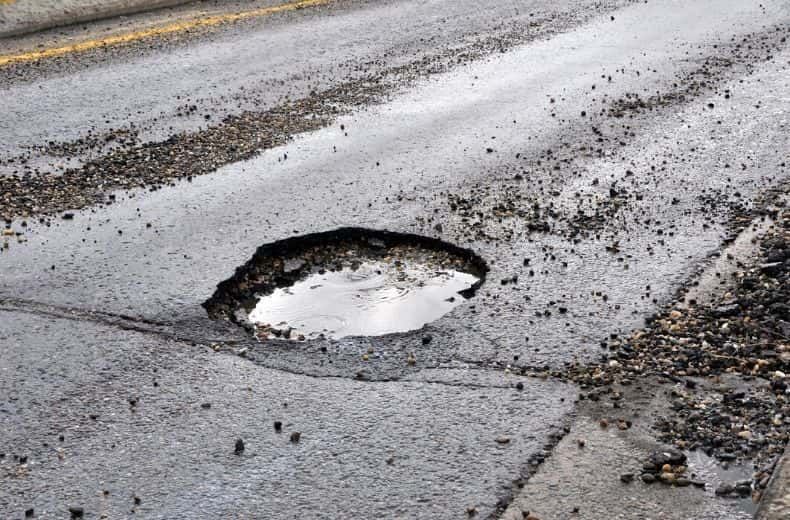Transport Secretary Grant Shapps has set a target of filling 11 million potholes with the new Transport Infrastructure Investment Fund, among other vital improvements. Official statistics suggest the materials needed are enough to tarmac a road stretching a third of the way around Earth.
The £1.7 billion pound boost will transform roads and bridges and help install new priority bus lanes at key locations to keep the country moving.
A number of projects will be implemented to maintain the cleaner air levels recorded during lockdown, with £175 million worth of work accelerated to take place on quieter roads.

RAC sale – up to 33% off*
• Roadside cover from £5.29 a month†
• We get to most breakdowns in 60 mins or less
• Our patrols fix 4/5 breakdowns on the spot

England’s motorways and major A-roads have already benefitted from £200 million worth of work carried out in April.
Mr Shapps said: “To help those who do have to use public transport or get out on the roads to do their jobs, we’ve been accelerating infrastructure upgrades to make sure that, as we gradually reopen our society, everyone can benefit from smoother and safer journeys with better connections for our future.”
RAC head of roads policy Nicholas Lyes: “We have pushed for essential road maintenance to be sped up considering the roads have been much quieter than normal, so we welcome the transport secretary’s announcement.”
- How to report a pothole and claim for damage online
- The RAC guide to the Great British Pothole
- Electric cars – the ultimate guide
Pothole-related breakdowns rose in the first quarter of the year, even though the nation was encouraged to limit travel to essential journeys from early March.
Mr. Lyes added: “It is particularly welcome that ministers are removing the complex and bureaucratic bidding procedures that local authorities usually have to go through for these funds, which should speed up repairs.”
Access to electric vehicle charging points are also a priority, as the government plans to provide a minimum of six ultra-rapid chargepoints to every motorway service station.
Larger sites could feature as many as 12 ultra-rapid points, each one allowing drivers to charge their vehicle in 15 minutes.
The charging process will also benefit from quick and easy debit and credit card payments.
Mr Lyes said: “Concerns about range anxiety still exist, particularly where drivers need their vehicles for longer journeys, so increasing the supply of rapid chargepoints at motorway service areas should help convert a number of drivers that are thinking about buying an electric vehicle into actually buying one.”
Is it illegal to drive without shoes?
Get the answer and more useful driving content sent straight to your inbox.







